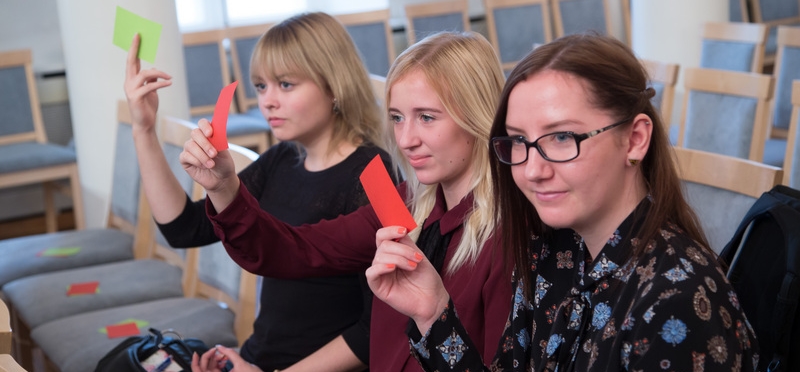- Home
- Study book
- Week 1: Introduction to multilingualism and plurilingualism
- Week 2: Understanding bilingualism
- Week 3: Multilingualism in state and society, and the role of communities
- Week 4: Early Childhood Multilingualism
- Week 5: Multilingual school
- Week 6: Multilingual higher education
- Week 7: Interculturalism and intercultural communication
- Course team

MOOC: Multilingual Education
Home
Welcome! Willkommen! Tere tulemast! Benvenuto! Dobrodošli! Добро пожаловать!
“The more languages you speak, the more human you are”
(Bulgarian proverb)
In contemporary society, more and more people from various linguistic and cultural backgrounds meet and interact in formal and informal situations. For these interactions to be smooth and successful, it is important to engage all our linguistic resources and knowledge. The main purpose of this course is to familiarise participants with a number of benefits of living in a society with a rich linguistic and cultural diversity.
The aim of this seven-week course is also to present the latest research in the area of multilingualism, bilingualism and plurilingualism as well as introduce several good practices at all levels of education.
Finally, participants will be given opportunities to analyse and reflect on their own linguistic and cultural background and develop a fuller awareness of the communicative potential that can be accessed and activated through their linguistic repertories.
This is a seven-week self-study online course that introduces various aspects of multilingualism and especially multilingualism in education. The course is aimed at a wide audience, including university students, teachers, teacher educators, and families interested in multilingual education. The main language of instruction is English, but throughout the course participants will be exposed to a variety of languages either through hearing people speaking in videos or in some instances a language choice is given for external reading materials. The course does not only talk about multilingualism, but also promotes it through the exposure to various languages during the course.


This material has been produced as part of the project “ Multilingual Higher Education: Cooperation for Innovation and Exchange of Good Practices“ co-funded by the Erasmus+ Programme of the European Union.
The European Commission support for the production of this publication does not constitute an endorsement of the contents which reflects the views only of the authors, and the Commission cannot be held responsible for any use which may be made of the information contained therein.
© This material is the joint property of University of Tartu (Estonia), Pädagogische Hochschule Freiburg (Germany), Libera Universita di Bolzano (Italy) and Univerza na Primorskem (Slovenia).


